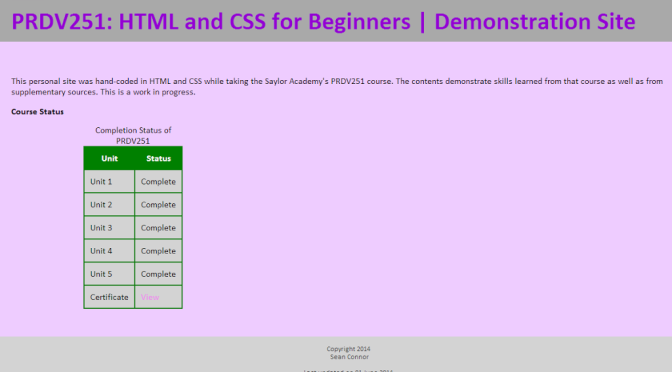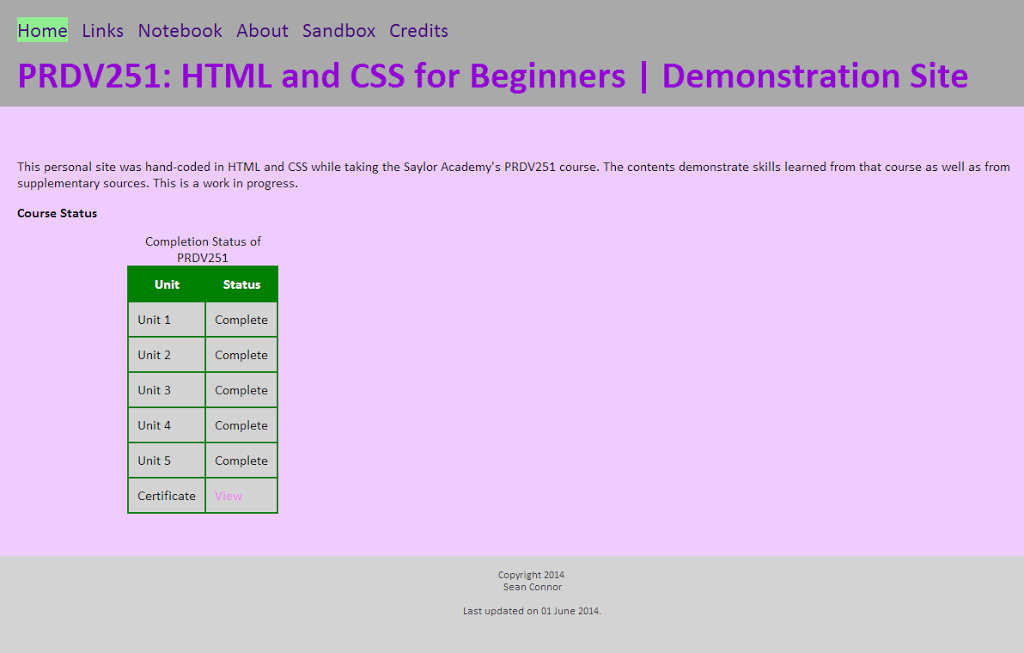Today, at long last, I have completed Saylor Academy’s PRDV251: HTML and CSS for Beginners course (CC BY 3.0 wrapper, comprising both open and closed resources).
Whew!
The course requires some light hacking; in particular, figuring out how to use a text editor and browser to create a cohesive website from local files is largely up to the student, but there is no shortage of help available from the Web. In any case, I regard this friction as a good thing, driving learning and retention.
Rather than take notes in an outline format for this course, which is my wont, I decided to create a website that would serve as both sandbox and documentation for what I learned. The result, written in a series of lightweight text editors and published via Google Drive is this:
PRDV251: HTML and CSS for Beginners | Demonstration Site
Overall, the course is very good and recommended not least for its introduction of other useful resources. Finally, a confession: the code is messy and not really all good HTML5; one develops best practices along the way and earlier work is inferior to the later stuff. So it goes. Some things got fixed, some things got commented out, and some things are there to stay as a permanent reminder of what not to do in the future.

